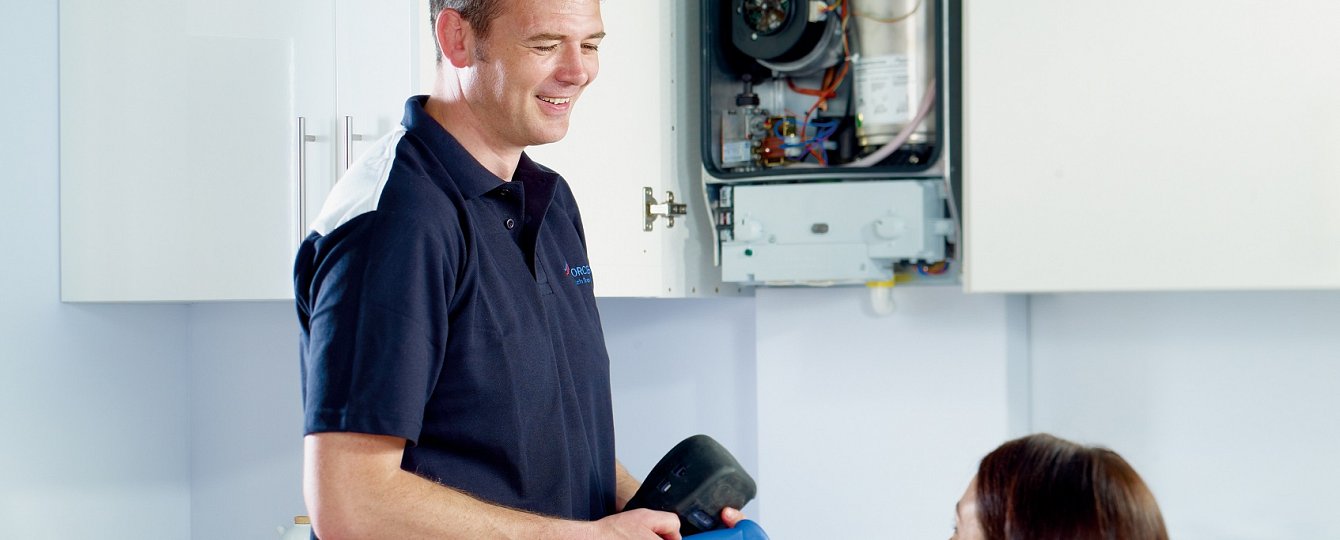

A range of specialist
YourPlumber services
for every home

10 November 2015
Boilers are expensive to repair, even more expensive to replace. A poorly-maintained boiler is not just more likely to breakdown, but can cost more to run if it is working inefficiently and can even be potentially fatal if a fault develops.
Like a car, it makes good sense then to keep your boiler serviced and well-maintained to ensure it is working safely and efficiency, to reduce the risk of breakdown and to maximise its life expectancy.
Here are some tips for you to keep your boiler well-maintained
ANNUAL SERVICE
Many people only consider servicing their boiler when they suspect something may be wrong with it. Even if everything seems to be in working order, you should arrange an annual service visit by a Gas Safe registered engineer to perform a service of your boiler. A series of safety and maintenance checks will be carried out, cleaning components and making adjustments where necessary to optimise the boiler's efficiency. Importantly potential faults can be spotted before they develop, helping to save costlier repairs in the long run.
Servicing can be paid for as a one-off service, or by joining a service plan scheme such as HeatCare, where annual maintenance is paid for in small monthly direct debits.
RUN THE SYSTEM OCCASIONALLY
During summer months when the heating is off, components such as pumps can seize up and become problematic when it comes to firing up the heating again. It is worthwhile therefore running the heating for 10-15 minutes occasionally, even during summer months.
BLEED RADIATORS
Air in heating systems can cause issues from inefficient operation to complete breakdown. A simple way to discover if you have air in your system is to check how the heat is dispersed across your radiators. If they are hotter at the bottom than at the top, then you may have air in the system that needs bleeding. If you are unsure how to bleed the system you should consult an plumber or heating engineer.
If your radiators are colder at the bottom than at the top, this may indicate that you have an issue with sludge in your system and should consult an expert to determine if there is a problem that needs rectifying. You can learn more about the removal of sludge from systems on our Powerflush page.
KEEP AN EYE ON YOUR SYSTEM'S PRESSURE
Heating systems can lose pressure over time, which means your system needs re-pressurising. Instructions how to do so are usually included in your manual. If not, you should consult an expert.
If the system keeps losing pressure frequently after re-pressurising, you may have a leak or a fault with your boiler and should consult an expert to investigate.
LOOK AND LISTEN FOR EARLY WARNING SIGNS
If you see any leaks from your system or black soot marks, you may have a problem and should consult a boiler engineer immediately. You should also listen for any early warning signs such as clunking or banging from your system which if treated early can help you avoid costlier repairs in the long run by preventing further damage.
FIT A CARBON MONOXIDE ALARM
Carbon monoxide is a toxic gas that you cannot see, taste or smell and can be produced by faulty boilers. You should fit a carbon monoxide alarm near to the boiler to alert you in the event of a carbon monoxide leak so that you can call in an expert immediately.